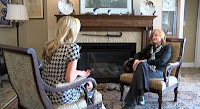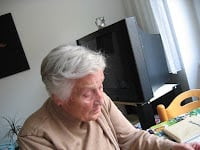Caregiving for Alzheimer’s demands the support of loved ones and time for self-care. Read how overwhelming stress can increase the risk of caregiver dementia by sixfold.
Husbands or wives who care for spouses with dementia are six times more likely to develop the memory-impairing condition than those whose spouses don’t have it, according to results of a 12-year study led by Johns Hopkins, Utah State University, and Duke University.
The increased risk that the researchers saw among caregivers was on par with the power of a gene variant known to increase susceptibility to Alzheimer’s disease, they report in the May Journal of the American Geriatrics Society.
A few small studies have suggested that spousal caregivers frequently show memory deficits greater than spouses who aren’t caregivers. However, none examined the cognitive ability of caregivers over time using standard, strict criteria to diagnose dementia, a serious cognitive disorder characterized by deficits in memory, attention, judgment, language, and other abilities.
To get some answers, Johns Hopkins psychiatry professor Peter Rabins, M.D., M.P.H., and a team led by associate professor Maria Norton, Ph.D., of Utah State University, examined 1,221 married couples ages 65 or older. These individuals were part of the Cache County (Utah) Memory Study, which has identified over 900 persons with dementia in the community since 1995. All of the study participants live in Cache County, whose residents topped the longevity scale in the 1990 United States census.
Starting in 1995, the researchers began screening volunteers for dementia. The volunteers first completed questionnaires to evaluate their cognitive status. Those whose questionnaires suggested possible dementia underwent a comprehensive clinical assessment administered by specially trained nurses and technicians. Finally, a team led by a geriatric psychiatrist and a neuropsychologist evaluated the findings and assigned a diagnosis of dementia where appropriate.
In the sample of 2,442 married persons, the researchers diagnosed 255 individuals with dementia and discovered that individuals whose spouses had already been diagnosed were six times as likely to develop the condition themselves compared to those without an affected spouse.
This increased risk is comparable to the risk of developing Alzheimer’s disease associated with a well-studied gene variant known as APOE-4, the researchers report. The findings held up even when the researchers accounted for other factors that might influence the risk of developing dementia, such as socioeconomic status.
Norton says the long-term nature of the new research makes the results different from earlier “snapshot” studies showing memory loss in spousal caregivers. “We know that the declines in memory we saw were real and persistent, not just a point in time where they weren’t performing well on tests,” she says.
A strength of the Cache County Study, Rabins notes, is the findings are highly representative of the community since the vast majority of residents age 65 or older are participating in ongoing research. Earlier studies have often relied on results from patients of memory centers and their caregivers, a sample that might not typify the community at large.
Rabins, Norton, and their colleagues speculate that the stress of caregiving might be responsible for the increased dementia risk for spouses, although more research is need to identify what that mechanism might be. If their hunch is correct, Rabins says, doctors who treat dementia patients should pay more attention to efforts to decrease stress for spousal caregivers.
“Caregiving has positive aspects, as well as negative ones. If we can boost the positive aspects and reduce the negative ones, we may be able to reduce a caregiver’s risk of developing dementia,” Rabins says.
Researchers have long been interested in how taking care of a spouse with dementia affects caregivers. Most previous studies have focused on the emotional distress caretakers often experience, rather than how their cognitive abilities might be affected.
SOURCE:
Johns Hopkins Medicine











